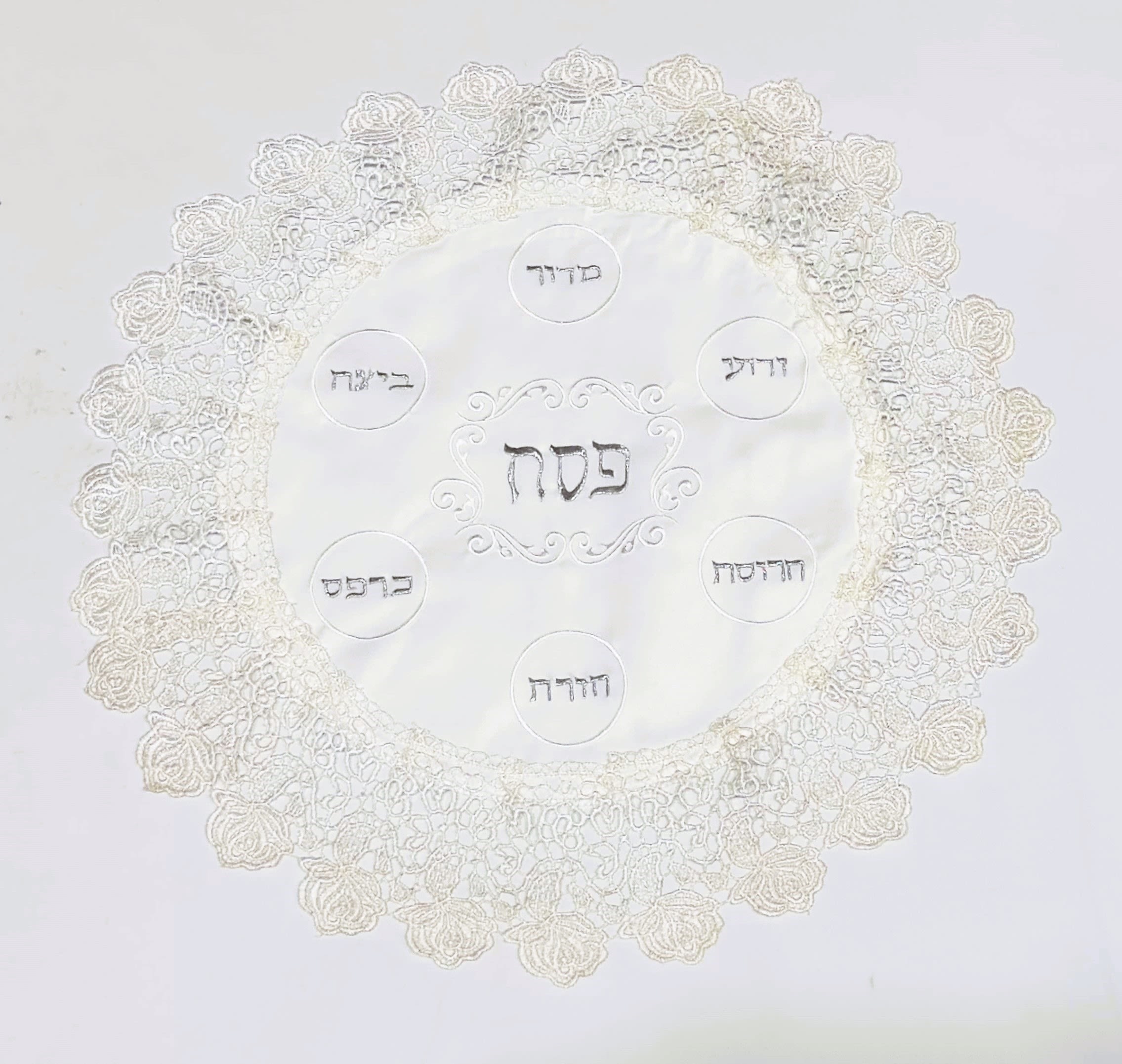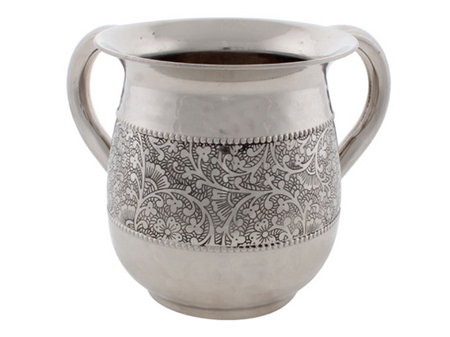
The Wicked Generation
This is a 'wicked' generation - it's a generation where people aren't going to play along just to make people happy, or from a false sense of obligation...

A few months' back, I was at the Wednesday morning shiur (torah lesson) that I try to go to in my village, when the rabbi who gives it went off on a (for me) perplexing tangent. The shiur is on chassidut and the rabbi is an amazing rav who I actually went to Uman with in the summer. He's not a 'Breslever' per se, but he still goes to Uman for Rosh Hashana, and he has a lot of respect for Rebbe Nachman's teachings.
That morning, he was talking about Rabbi Elimelech of Lizhansk, and his book, the Noam Elimelech. It was all interesting, great stuff – until he mentioned that there are three 'main' works that came out of chassidut: the 'Noam Elimelech' was considered to be the manual, or 'book' for the tzaddikim (righteous people); the Tanya, written by Rabbi Shneur Zalman, the founder of Chabad, was the book for the  people 'in-between'; and Likutey Moharan was the book for the wicked.
people 'in-between'; and Likutey Moharan was the book for the wicked.
The smile froze on my face.
The Rav didn't explain further, he just went back to the main topic of his class. But I walked around for weeks and months trying to work out what he actually meant. I love Likutey Moharan (the bits I understand, and the bits that have been made accessible by Rav Arush…) I love Breslev. I'm aspiring to one day actually be a Breslever myself.
Did that mean I was 'wicked'?
I really didn't know what to think about it all, so I shelved it. This week, someone sent me the English-language parsha sheet by an Israeli rebbetzin called Yemima Mizrachi. Yemima Mizrachi is taking the frum (religious) female world in Israel by storm: she's incredibly funny; she's incredibly insightful; she's incredibly real – and she quotes a lot of Rebbe Nachman.
In her parsha sheet, she was talking about how these days, we are living in the generation of the 'wicked', or the 'wicked son'. On seder night, as we all know, there are four sons, asking four questions.
Crack open pretty much any haggada, and you'll find the wicked son getting a very rough ride for being such an evil person.
The wicked son sits at the seder table, on the side – he doesn't feel a part of what's going on around him. He asks the people around him why on earth they are bothering to do the whole seder night?
I mean, some of you are here with your non-Jewish spouses; some of you have the annoying habit of interrupting the haggada story with big rants about how you know the whole thing is made up and never really happened; some of you are only here because your mum made you come; some of you are rushing through the haggada so you can get to the part where you eat the chicken couscous…
Why are you even bothering to be here? What does it even mean to you all?
According to Rebbetzin Yemima, chassidut teaches that the wicked son is really a diamond in the rough. He's asking a lot of disrespectful questions, it's true – but it's because he really wants to have the answers. And once he's got the answers, he is going to be the most sincere, most fired-up, most enthusiastic newly-observant Jew you ever met in your life.
I got very thoughtful.
Just last week, I was (trying) to teach a class on Rav Arush's latest book, about educating children with love. We'd got up to the part where Rav Arush said that if a parent is not keeping mitzvahs happily, he can forget about his kids wanting anything to do with his way of life when they grow up.
Who needs a religion that's heavy and depressing and miserable and burdensome, when people are having so much 'fun' out there?
I asked the brave souls around the table: why are we keeping mitzvahs? What's really motivating us to do all this stuff?
I had a big long list of responses: some people were keeping mitzvas because they were worried about the Heavenly thunderbolt that would strike them if they didn't; some were doing it to 'keep up' or 'fit in' with friends and family; some were doing it from habit; some saw a torah-observant lifestyle as a sort of Divine insurance policy, where you pay in a few Shabbats and you get back a great job or a shidduch.
Some people do it so they can feel superior, and look down their nose at the people who aren't as 'religious' as they are; some do it because they are idealists, and it's the right thing to do; and some do it for the reward – (preferably) in this world, or the next.
But Rav Arush teaches that none of these reasons will encourage our kids to keep mitzvas. The only thing that will is if we are happy to do G-d's will, just because it's G-d's will.
I realized, my questions sounded awfully like those of the wicked son. I realized something else: the wicked son is more than half way to becoming a Breslever.
As time goes on, I speak to more and more people who are having trouble 'fitting it' with the religious world they see around them. They can't stand the hypocrisy; they can't stand the double-standards; they can't stand the emphasis on looking the part or playing the part over actually being the part. They can't stand the clique-ness of it all; the pretense, the show.
They sit to one side at the seders (and shuls; and schools; and torah classes…) they go to, and they wonder to themselves: what are we doing this for? They look at all the people measuring their matzah and lettuce leaves against the specially-designed laminated guide, and they dread having to choke down another square metre's worth of matzah because their hosts insist they 'do it properly'. They listen to all the 'intellectual' discussions about the 'modern notion' of slavery; or the sob stories about little African Ayisha, who was sold to be a slave in Liberia; or the brilliant torah discourses about how Egypt – Mitzrayim – was a very 'narrow' place, a place of constricted consciousness – and their hearts tell them that the people saying all these amazing ideas are even more sunk in spiritual slavery than their ancestors were in Egypt.
Why do we have to go through this charade every year? – they want to yell.
Why does it bother them so much?
Because underneath it all, they just want 'real'. They want real answers to real questions. They want a real connection to their friends and family. They want a real connection to G-d. They really want to know what life is about, and why G-d made them.
Underneath it all, they aren't wicked; they are really searching for truth.
This is a 'wicked' generation – it's a generation where people aren't going to play along just to make people happy, or from a false sense of obligation, or to avoid a bust-up.
If it's not 'real', if it doesn't really speak to them, they simply won't do it.
But that's also why Likutey Moharan really is the book of the wicked – because it tells you the why. It explains, clearly, how things work; why we're alive; why 'bad' things happen to 'good' people; why there's so much apparent injustice and pain and suffering in the world – all of it.
It tells you what G-d really expects from us, and how we can really give it to Him. It gives us a path through all the phoneyness, the 'show', the lies, to a place of eternal truth, peace, and beauty.
Likutey Moharan takes the edge off all the hard questions by providing real answers. It 'blunts the teeth' of the wicked son in a way that nothing else can; and sooner or later, it's going to bring all of us 'wicked' sons and daughters right back, close, to G-d.












5/24/2012
modern slave ‘sob stories’? Neat article, but what's this line about? "or the sob stories about little African Ayisha, who was sold to be a slave in Liberia" Don't think it gets any more real than the issue modern slavery. I'm not following this comment.
5/24/2012
Neat article, but what's this line about? "or the sob stories about little African Ayisha, who was sold to be a slave in Liberia" Don't think it gets any more real than the issue modern slavery. I'm not following this comment.